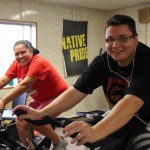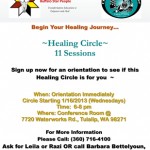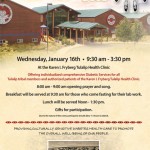ObamaCare Facts 2013 – We Tell you the Facts, Not The Talking Points
www.obamacarefacts.com
We present the Facts on Obama Care (ObamaCare) / The Health Care for America plan. Our goal is to help you understand the basics of the ObamaCare health care plan and bill, so you can decide for yourself what you think of ObamaCare, based on the facts and not the News Radio / TV opinions.
• ObamaCare, Obama Care and Health Care for America are all the same thing. The official name for “ObamaCare” is the Patient Protection and the Affordable Care Act, a bill signed into law to reform the health care industry.
• Some aspects of Obamacare health care reform are already enacted. The Patient Protection and Affordable Care Act was signed in 2010, and over 100 million Americans have already benefited from the new health care law.
• ObamaCare requires that insurance plans cover preventative services and stops insurance companies from dropping you when you are sick, as well as offering a number of other reforms and protections.
After you get done reading the ObamaCare facts check out the full, in detail, summary of Obama Care to get the facts on how Obama’s health care reform will really work: The Affordable Care Act Summary
• ObamaCare is a hot button political issue and both sides of the isle will try to persuade you for or against it. Get THE FACTS on ObamaCare and the Plan for Health Care in America.
• ObamaCare’s goal is to provide affordable health insurance for all US citizens and to reduce the growth in health care spending.
• ObamaCare does not replace private insurance, Medicare or Medicaid.
• The Fact is ObamaCare gives 47 million women access to preventative health services and makes it illegal to charge women different rates than men. Get More ObamaCare Women’s Health Services Facts
• ObamaCare gives seniors access to cheaper drugs, free preventive care, Reforms Medicare Advantage, and closes the Medicare Part D ‘donut hole. The AARP agrees, costs won’t rise because of ObamaCare, if anything the improvements to the system will make seniors health care costs go down.
• 1 in 2 Americans have a “pre-existing” condition they could be denied health insurance for. ObamaCare Chips Away at Pre-Existing Conditions until 2017 when there are no more preexisting conditions for anyone, including high-risk customers.
• 54 million Americans with private health insurance now have access to preventive services with no cost sharing due to the new minium standards of ObamaCare.
• ObamaCare doesn’t ration health care, it protects consumers from the health care rationing insurance companies have been doing for ages.
• Did your health insurance premium go up? The Fact is ObamaCare enacts a number of consumer protections including a rate review provision where insurance companies will have to justify rate hikes above 10% to your State and post details online immediately. Yet many Americans are still their premiums rise at alarming rates. Learn More About ObamaCare Insurance Premiums
• Other insurance reforms to curb the cost of premiums are already in action include a Medical Loss Ratio policy and other accountability measures. Many more protections go into effect in 2014, so far the average insurance premium has gone down and Americans saved $2.1 billion in 2012 alone.
• ObamaCare means 21 new taxes, get the facts on how they will affect you, your family and your business. ObamaCare Taxes Facts
• We’ve created a detailed ObamaCare Facts timeline of every protection, benefit and tax laid out by the Affordable Care Act Bill from 2010 to 2022. Health Care Reform Timeline
• ObamaCare’s insurance reform helps to insure millions of Americans each year. 48.6 million Americans went without insurance during all of 2011, compared to 49.9 million in 2010. The rate of uninsured decreased from 16.3% to 15.7%, the biggest percentage drop since 1999 due to the Affordable Care Act.
• ObamaCare takes measures to prevent all types of discrimination in regards to your right to health care, including discrimination based on gender, income and health issues.
• All Americans have the option to stay on their current healthcare plans. No one including seniors will be forced not to have healthcare. That’s an ObamaCare fact.
• ObamaCare reforms and expands Medicaid to an estimated 15 million of our nations poorest. That’s 6.1 million less than the last estimate due to States opting-out out of providing coverage, despite 100% federal funding for the first 3 years and 90% thereafter. ObamaCare Medicaid Expansion
• States will have to spend millions on Medicaid over the next ten years regardless of whether they implement Medicaid Expansion. However, states that do implement ObamaCare’s Medicaid Expansion will reap billions in additional federal dollars.
• 25 States have opted out of setting up a State Run Health Insurance Exchange. This leaves the federal tax payer responsible for providing care for their constituents. 19 are running a State Exchange, 7 set up joint exchanges. Find out more about ObamaCare’s State Run Exchanges
• ObamaCare provides $20 billion in tax credits for as many as 4 million Small Businesses to offset the cost of purchasing insurance on the Health Insurance Exchanges.
• Only the top 3% of small businesses will have to pay the additional 0.9% ObamaCare Medicare tax increase.
• Only .2% of businesses have over 50 employees and don’t already offer insurance to full-time workers. Providing these folks with insurance is the only “employer mandate” in ObamaCare.
• Over half uninsured Americans are small business owners, employees or their dependents. Learn the Truth Behind the ObamaCare Small Business Taxes, How They Affect America’s Biggest Job Creators.
• Want single payer? Come 2017 states will be able to get a waiver to set up their own approved health care solution, as long as it meets the standards of ObamaCare.
• Starting OCT 2013 insurance companies will compete to be your healthcare provider via a health insurance exchange pool, this helps to decrease insurance premiums for all Americans.
• The CBO Estimates 19 million Americans (of the 23 million estimated to use the exchange) will Receive Tax Credits to Purchase Insurance on the Exchanges.
• Due to Tax credits and up-front assistance Americans making under 400% of the FLP (roughly $88k for a family of 4) could see up to a 60% reduction in the cost of health insurance premiums.
• Employers can use SHOP, a part of the exchange, to purchase affordable coverage for their workers.
• Uninsured Americans cost the American healthcare system an additional $49 billion. Only 12% of uninsured families pay their hospital bills in full, this includes families making over $88k a year. These costs affect insurance premiums, ObamaCare helps to reduce this spending drastically.
• Annual limits for insurance premiums can be no more than 11% or less than 1.5% of your modified adjusted gross income, when insurance goes on sale via the health insurance exchanges in 2014.
• Members of Congress will purchase their health care through the health exchange like the rest of us (who chose not to opt out and pay a tax, are covered by Medicaid or choose to stay on their existing insurance) Get more facts about the ObamaCare Insurance Exchange
• In 2011 ObamaCare helped around 86 million Americans use free preventative services that had previously been subject to co-pays or deductibles.
• ObamaCare aims to improve community health care centers in an effort improve health care for those who cannot afford private health care.
• Obamacare doesn’t increase the deficit, it is projected to cut the deficit by over Trillion dollars over the next two decades.
• ObamaCare offers countless benefits and protections that have been rolling out since 2010 and continue into 2022. Find out more about the Benefits of ObamaCare
• In 2013 American Employers with more than 25 or less employees may receive tax breaks of up to 35% (25% non-profits) of the cost of their employees insurance premiums. In 2014 in increases to 50% (35%).
• Employers with more than 50 employees must insure their workers or pay a tax (like the current state run unemployment and workers compensation programs)
• ObamaCare won’t cause 650,000 Jobs to be lost as some of it’s detractors say (the number isn’t even in the CBO report on The Affordable Care Act). The often misrepresented quote stated that the only job loss ObamaCare may actually cause are from those who cut back their hours, since they will no longer have to rely on their jobs for their families health care. In fact most reports show that ObamaCare will create new jobs.
• ObamaCare doesn’t regulate health care, it regulates health insurance. What is ObamaCare?
• If an you or your family chooses not to purchase healthcare through the Online Health Insurance Exchange, they can still buy private insurance, get insurance through work or Medicare / Medicaid. Those who chose to not participate will pay an income “penalty” tax to help cover the rest of us. In other words it’s a tax, not a mandate, no one is actually forcing you to have health insurance.
• Obamacare cuts $716 billion of waste from Medicare and reimbursements to private Medicare Advantage plans and reinvests it into Obama’s health care reform. In other words $716 billion is saved and then $716 billion is reinvested back into Obamacare and Medicare. Doctors and hospitals almost universally agree on this reform.
• 19 million Americans will receive tax credits to help pay for healthcare and most middle class Americans will actually save thousands on healthcare via tax cuts (this has been going on for the past 3 years already)
• The Affordable Care Act (ACA or ObamaCare) reduces costs of premiums to millions of families and small businesses and provides billions dollars in tax relief – the largest middle class tax cut for health care in history.
• The healthcare industry, specifically doctors will be rewarded for quality over quantity.
• The Affordable Care Act allows Religious institutions to choose to be exempt from providing controversial contraception and reproductive health services to women. Multiple businesses have also received an exemption after taking the ruling to court.
• The Affordable Health Care Act doesn’t just focus on insurance, it also reforms the parts of the healthcare system that aren’t working or are costing the tax payer money. For example, by focusing on preventive measures instead of just treatment ObamaCare will save tens of billions of dollars and tens of thousands of lives.
• The ObamaCare fact is the average American will save money under Obamacare. In fact many Americans are already paying less for health care services.
• Obamacare cuts the national deficit by over two hundred billion dollars during it’s first 10 years.
• ObamaCare aims to make it easier for small businesses to provide coverage to workers by offering Tax Credits to employers who enroll their workers in private healthcare plans.
• One of the main goals of ObamaCare is to ensure that all preventative care will be free on all insurance plans. Private insurance plans that are grandfathered in and are all ready in place will be exempt until they lose their grandfathered status.
MOST IMPORTANTLY: The “ObamaCare” Bill is currently signed into law. There are many people who would like to see ObamaCare repealed. If Obamacare is repealed millions of Americans will be without proper health coverage and insurance companies will continue to be able to deny healthcare for preexisting conditions. Without healthcare reform America will continue suffer the consequences of a health care system controlled by private companies, who’s bottom line is money and not health. Help ObamaCare Facts to spread the truth about President Obama’s health care reform.












